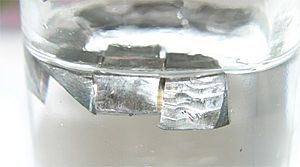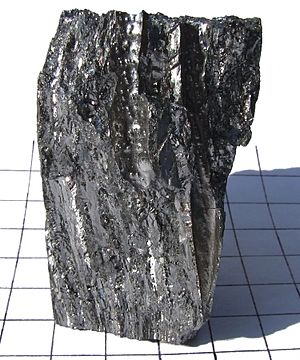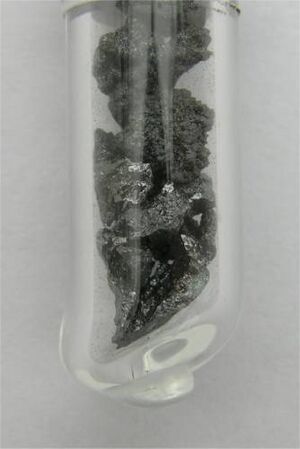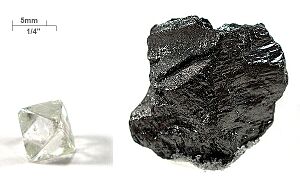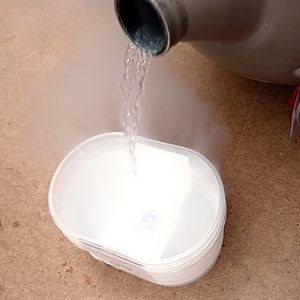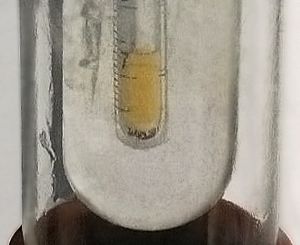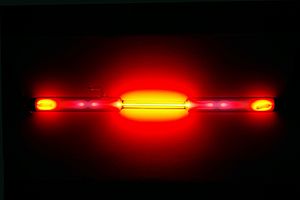Period 2 element facts for kids
A period 2 element is a special type of chemical element found in the second row (or "period") of the periodic table. Think of the periodic table as a big chart that organizes all the known elements in the universe! Elements in the same period share some interesting things about how their electrons are arranged. There are eight elements in Period 2: lithium, beryllium, boron, carbon, nitrogen, oxygen, fluorine, and neon.
Contents
Exploring Period 2 Elements
The periodic table is a super important chart in chemistry. It helps scientists organize all the different chemical elements. Elements are the basic building blocks of everything around us! The table arranges elements by their atomic number (how many protons they have). Elements in the same row, called a "period," have their electrons in similar energy shells. Elements in the same column, called a "group," often have similar chemical behaviors.
What Makes Period 2 Special?
Elements in Period 2 are the smallest elements that can form many different kinds of chemical bonds. This is because they have only two electron shells. The first shell can hold up to two electrons, and the second shell can hold up to eight electrons. This allows them to connect with other atoms in many ways, making them very important for life and technology.
Meet the Period 2 Elements
There are eight elements in the second period. They start with lithium and end with neon. As you move from left to right across the period, each element gains one more proton in its nucleus.
Lithium (Li)
Lithium is a soft, silvery-white metal. It is the lightest metal and is very reactive. This means it easily combines with other elements. Lithium is used in batteries for phones and electric cars. It is also found in some medicines.
Beryllium (Be)
Beryllium is a light, strong, and brittle metal. It is often used to make special alloys (mixtures of metals). These alloys are used in things like aircraft parts, spacecraft, and even some sports equipment. Beryllium is also used in X-ray machines.
Boron (B)
Boron is a metalloid, which means it has properties of both metals and nonmetals. It is a hard, black, and brittle solid. Boron is used in things like borosilicate glass (Pyrex), which is very heat resistant. It is also found in some detergents and fertilizers.
Carbon (C)
Carbon is one of the most important elements on Earth! It is the basis of all known life. Carbon can form millions of different compounds. It is found in everything from diamonds and graphite to all living things, including you! Carbon is also a key part of fossil fuels like coal and oil.
Nitrogen (N)
Nitrogen is a colorless, odorless gas. It makes up about 78% of Earth's atmosphere, meaning it's the most common gas in the air we breathe! Nitrogen is essential for life and is a key part of proteins and DNA. It is used in fertilizers to help plants grow and in many industrial processes.
Oxygen (O)
Oxygen is a colorless, odorless gas that is vital for most life on Earth. It makes up about 21% of Earth's atmosphere. We breathe oxygen to live! It is also a key part of water (H2O) and many other compounds. Oxygen is used in hospitals for patients who need help breathing and in welding.
Fluorine (F)
Fluorine is a pale yellow-green gas. It is the most reactive of all chemical elements. This means it reacts very easily with almost anything! Because it is so reactive, it is used in things like toothpaste to prevent cavities and in refrigerants.
Neon (Ne)
Neon is a colorless, odorless noble gas. Noble gases are very unreactive, meaning they don't easily combine with other elements. Neon is famous for its bright orange-red glow when used in "neon lights" for signs. It is also used in some lasers and in high-voltage indicators.
Images for kids
See also
 In Spanish: Elementos del periodo 2 para niños
In Spanish: Elementos del periodo 2 para niños
 | Aaron Henry |
 | T. R. M. Howard |
 | Jesse Jackson |


